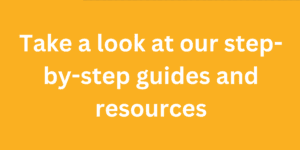Middle school is a unique transitional period for students, with growing responsibilities and new academic challenges compounding during the two to three year period. During this time, it’s particularly important for students to refine their study skills to prepare for high school and a postsecondary education. Unfortunately, many middle school students are already behind when it comes to developing their study skills.
Let’s break down the most essential study skills every middle school student should learn, why they matter, and what can be done during this critical educational period.

Fig: The Importance of Middle School Education
The Importance of Middle School Education
During middle school, students begin to learn more complex subjects and are encouraged to think about their future in academics and beyond. For many students, middle school will be the first time they take classes with many different teachers, who typically will not schedule their projects, homework, and exams with consideration to when other teachers do.
This means some middle school students will realize for the first time that they have to adapt to a changing schedule, the different expectations for each teacher, and to have the mental flexibility to shift between expectations many times a day.
During this time, it becomes apparent when a student lacks important study skills, as they have to balance and prioritize a bigger workload. Middle school students are expected to take more responsibility for their grades than they did in earlier grade levels, which can also reveal areas of weakness in their academic routines.
If students fall behind in middle school, they may enter high school lacking confidence and becoming disinterested in taking their educational opportunities seriously. By developing important study skills in middle school, students can build momentum toward their future while honing helpful life skills like perseverance, a growth mindset, and grit.
How Study Skills Change in Middle School
Middle school is full of changes. Students will see their academic workload increase—but they will also see it begin to look different. A typical middle school curriculum introduces students to more academic independence, since they become more responsible for organization, self-management, and prioritization, all of which are essential study skills.
In elementary school, students are more closely supervised by teachers who often provide supportive study tools. Middle school students must navigate learning how to study on their own. When students receive poor test and quiz grades, they are often told to study more, which is difficult if they really don’t know how to study at all. Students can take advantage of being familiar with different study skills by beginning to learn what does and does not work for them and identifying areas of weakness.
Executive Function Skills for Middle School Students
Executive function refers to the set of cognitive skills that allow a person to plan and complete tasks. These skills affect every part of our lives but can be especially important when it comes to education.
Executive function skills are expected to develop fully between the ages of 13 and 25, so middle school is a crucial time for students to begin to develop strong executive function. Strong executive functions support better study skills, as many executive functions, like time management, are directly applicable to studying and other academic activities.

Fig: Executive Function Skills for Middle School Students
9 Key Study Skills for Middle School Students
Organization
With more classes than in elementary school, middle school students have an increased number of materials, assignments, and environments to track. If a student forgets to bring the right book home, they may not be able to study or complete an assignment. If they fail to fill out their planner, they may be caught off guard and unprepared for an important test.
In many situations, teachers post assignments on the learning management systems differently. Systems like Google Classroom, Schoology, and Canvas are designed to have a uniform method of communicating assignments to students, but that does not always happen. Often students spend significant amounts of time looking for assignments online. We call this assignment hide and seek—not necessarily a great use of their time but a necessary one.
During their middle school years, students should practice resource management and organizational skills in order to learn what works best for them, since their workload will only increase when they reach high school. Organizational skills allow students to map out their study plan and give themselves plenty of time to prepare. Organization exists in binders, backpacks, lockers, online calendars, and several other places and can be viewed as a form of self-care.
For middle school students who struggle with this essential study skill, we recommend a dedicated executive function planner, which features step-by-step instructions for forecasting and goal setting as well as tab divider sets that are organized from the student perspective. Keep in mind that organization is a discipline that requires practice and time set aside each week to implement. The more a student practices organizing themselves, the easier it will become.
Note-Taking
For many students, middle school will be the first time they have to take notes without supportive documentation or worksheets. Good notes are essential for studying, yet it can be hard to know where to start. Middle school students should test out different note-taking strategies and methods in order to build this study skill and to find out what works best for them.
One popular note-taking method students can try is the Cornell method, which involves creating two columns, a Cue column and a Notes column. Some students may prefer concept mapping or charting, which involves organizing and connecting facts visually as notes are taken. Middle school serves as a great time for students to explore which note-taking method fits their needs.
Metacognition
Students can feel confident they know a topic well when they can teach that topic to others, but how do they determine what they know and don’t know? Furthermore, if a student stumbles in a specific subject, are they learning from that setback? Do they have a prescriptive way to evaluate their past preparation steps to determine whether it yielded the outcomes they expected?
Mistakes are fantastic opportunities from which to learn if framed correctly. Self-evaluations like those found in the Effective Student Method gives students the opportunity to evaluate themselves in key skill areas creating a degree of curiosity and awareness as they self-assess.
When asked, students often report that no one has ever inquired as to their opinion of themselves as a student. Given they are often judged by their performance and motivated by successes and struggles, engaging students in a realistic dialogue about their feelings enables them to be part of the academic solution. This is the difference between adult-dictated solutions versus collaborative adult/student-built solutions.
Teaching Others
Teaching others is the pinnacle of demonstrating mastery over specific content. But how do students determine if they’re ready to do so?
Fortunately, teachers provide many of the instructional resources online, so students can compile these in a central location. If a teacher has provided a study guide and or practice exercises, students can use the instructional resources to complete the study guide as an answer key. Ensuring the student has the correct responses is a critical aspect of this study skill. Students can also compare the answers or discuss with a peer, thus fortifying or correcting their understanding as needed.
Students can implement this study skill by teaching a parent, a pet, or even an empty room. When teaching the topic, students are able to identify areas where they are unsure or less confident about the subject matter, noting that for further research. Similarly, students can practice retelling what they have learned as a story.
Self-Testing
Self-testing stands out as a popular study technique. Also called retrieval practice, is a study skill supported by science in the book, Make It Stick: The Science of Successful Learning. This book explains, “Practice at retrieving new knowledge or skill from memory is a potent tool for learning and durable retention” (Brown, Roediger and McDaniel).
Many students are familiar with the practice of creating and going through flashcards or practice tests in order to evaluate their knowledge ahead of an exam. Self-testing through flash cards can help students identify what they do not know well and build confidence ahead of a test, helping to mitigate test anxiety.
To make self-testing study skills easier to implement, we recommend students make two or more copies of study guides, maps, and diagrams. The first time the student goes through the tool, they are building an answer key, making sure they have the correct answers for reference. In subsequent attempts, the students use these blank sheets as practice tests, correcting themselves and identifying what they know and don’t know.
This is another form of metacognition—thinking about their thinking. Students can then focus on what they missed rather than what they already know.
Goal Setting
Practical goals give students a clear path forward, allowing students to develop academic independence and to envision their academic future. During middle school, students should set goals appropriately and practice following through on those goals.
As a study skill, goal setting helps students identify what they will accomplish and when they will accomplish it. These goals should be measurable and realistic, thus resulting in a real sense of accomplishment upon completion. SMART goals are often recommended, but we shouldn’t overlook our audience because some goals are as simple as, “I want to be in control of myself,” or, “I would like my parents to leave me alone about schoolwork.” Being knowledgeable and accepting of our students’ goals can make adults a welcome partner.
Building a Routine
A strong study routine can make all the difference when it comes to middle school success. By knowing when to study and where to study, students can find it easier to actually start studying, as the activity becomes familiar and consistent. With a strong study routine in place, students can identify when a project or other activity will require a change in routine or additional dedicated time.
Outlining and Active Reading
Middle school students will have to do more independent reading, with less support from teachers to ensure they are processing the information properly. When reading, it’s easy for a student’s mind to wander, and, before they know it, they’re three pages on without being able to recall a single fact. To succeed at reading and to utilize it as a study skill, students should leverage active reading, which is the practice of critically engaging with a text to evaluate its meaning and better understand it.
Active reading can include annotating, breaking down into smaller sections, and summarizing into notes and visual aids. We recommend starting with a strong outline that includes categories and subcategories, so students see how material is grouped and relates to one another and can discriminate between two similar categories.
Active reading is an important study skill for middle school students, as it gives students the opportunity to spend time with a topic and interpreting its meaning. Students can be tasked with summarizing a paragraph into one or two short phrases, practicing finding the main idea of the paragraph and creating a succinct take away. This study skill grows increasingly important as students move up to high school and receive more challenging and lengthier reading assignments.
Time Management
The study skill of time management gives middle school students the power to appropriately plan ahead and give themselves enough time to study before a test. Most students are unaware of how much time they have, how they spend their time, and how to plan ahead successfully.
With strong time management study skills, students can balance all of their homework, studying, and other activities without feeling overwhelmed or unable to get started. Time management goes hand-in-hand with organization, routine building, and other middle school study skills.
If you’re interested in the first step in developing successful time management study skills, try our free My Available Time exercises here.
Emotional Self-Regulation
Emotional self-regulation may not initially seem like a study skill, but it can be essential for middle school success. School (and life) can be highly stressful for middle school students, and these elevated emotions can make it challenging for students to focus on their workload and envision themselves as successful students. In fact, when a student is elevated or anxious, they are neurologically less able to problem solve.
Self-regulation is an important study skill because it allows students to handle big emotions and overcome any associated anxiety with schoolwork. Self-regulation also allows students to calm themselves when feeling frustrated with a subject, thus preventing them from giving up at the first sign of an obstacle. Self-regulation can work well with the practice of self-care. Taking healthy breaks like walks, exercising, and listening to music can help students reset and re-engage.

Fig: Emotional Self-Regulation
Preparing Middle School Students for High School
By the time students begin high school, they are expected to have basic study skills in place, yet many students never experience a dedicated study skills curriculum. Without strong study skills in middle school and high school, students can underperform academically or disengage from the learning process, negatively affecting their future opportunities for postsecondary education.
Middle school students who can implement study activities to develop strong skills and learn to succeed academically have better prospects for college. According to a study by the University of Chicago, “A 3.5 middle school GPA was found to give students about a 50 percent chance of college success.” They also found that “a one point difference in GPAs in eighth grade corresponds to a 20 percentage point difference in the likelihood of passing ninth-grade math.”
At the end of the day, parents may want to ask themselves, does my student need an academic coach or a tutor to develop these study skills? At Effective Students, our goal is to engage students in learning through a partnership with an academic coach, so they can ultimately become a tutor for themselves.
Coaching and Courses for Essential Study Skills from Effective Students
At Effective Students, we focus on the process of learning, including those essential study skills students need in middle school and beyond. Our programs are designed to work alongside students to help them acquire and develop the tangible skills and educational independence to succeed.
Our one-on-one coaching sessions are our top recommendation for building essential middle school study skills. We also offer the supplemental Effective Student™ course, which teaches some of the essential skills our academic coaches teach in an accessible format.
For teachers, we created the Instructor Course, which brings together everything educators need to teach the executive function skills that support strong study skills. The program includes instructional videos, classroom exercises, lesson plans, student materials, and additional resources.
If you’re ready to find the right option for you and your student, contact our team to learn more.

